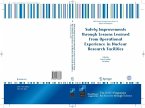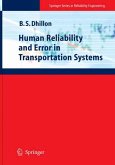HAMMLAB comprises three full-scale nuclear power plant control room research simulators. The simulator studies performed in HAMMLAB have traditionally been experimental in nature. In a simulator it is possible to study events as they unfold in real time, in a highly realistic operational environment under partially controlled conditions. This means that a wide range of human factors issues, which would be impossible or highly impracticable to study in real-life settings, can thus be addressed in HAMMLAB.
Simulator-based Human Factors Studies Across 25 Years
celebrates the twenty-fifth anniversary of HAMMLAB by reviewing the human factors studies performed in HAMMLAB across this time-span. A range of human factors issues have been addressed, including: . human-system interfaces; . alarm systems; . computerized procedures; . human-automation interaction; . staffing and teamwork; and . human reliability.
The aim of HAMMLAB studies has always been the same: to generate knowledge for solving current and future challenges in nuclear power plant operation to contribute to safety. The outcomes of HAMMLAB studies have been used to support design and assessment of nuclear power plant control rooms.
Dieser Download kann aus rechtlichen Gründen nur mit Rechnungsadresse in A, B, BG, CY, CZ, D, DK, EW, E, FIN, F, GR, HR, H, IRL, I, LT, L, LR, M, NL, PL, P, R, S, SLO, SK ausgeliefert werden.
Hinweis: Dieser Artikel kann nur an eine deutsche Lieferadresse ausgeliefert werden.









